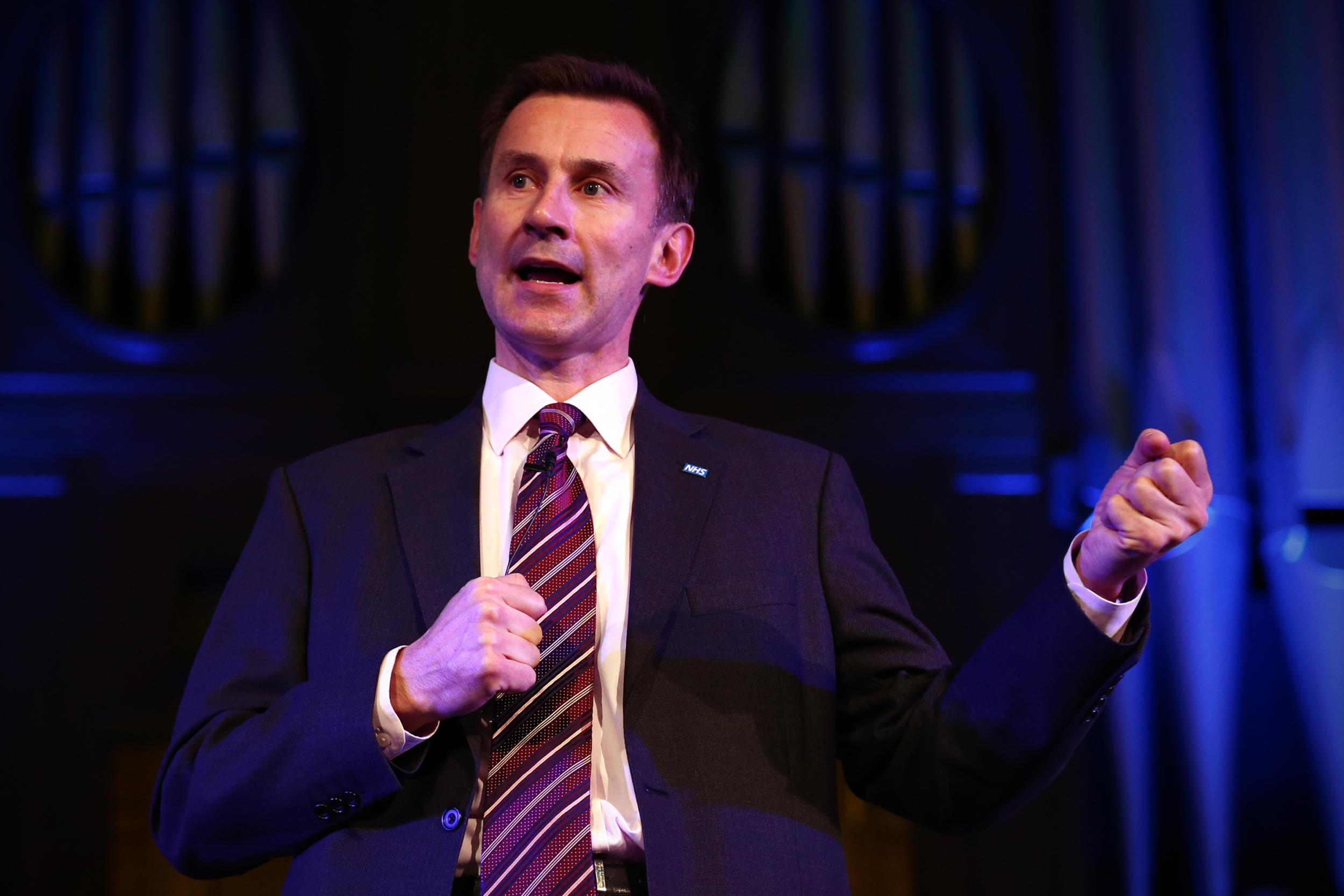Jeremy Hunt asking for ‘airline’ levels of safety in hospitals is a flight of fancy
I'm a junior doctor and my husband is a pilot. He flies a maximum of 100 hours per month, whilst I can work up to 91 hours in one week alone


Last week, our trailblazing Secretary of State for Health proclaimed in an Economist interview, his aspiration for safety levels within the NHS to match those of the airlines: "I am determined we blaze a trail across the world in developing a truly safe healthcare system with ‘airline’ levels of safety. Part of that needs to be reflected in doctors’ contracts."
As a junior doctor who’s married to a pilot, I’m perhaps more intimately acquainted than Jeremy Hunt with what airline safety entails.
The Health Secretary might like to know that my husband, an ex-RAF fighter pilot turned civilian pilot, is so aghast at the hours and shifts I work, he says they would turn his plane into a “a lethal weapon”.
The facts are incontrovertible. We know that tired doctors, like tired pilots, make mistakes. One study in the New England Journal of Medicine found that sleep-deprived junior doctors committed 22 per cent more serious errors on critical care units than those working less punitive hours. Other studies have measured the effects on doctors’ performance of a heavy night on-call as being similar to that of significant levels of blood alcohol.
Meanwhile, in commercial aviation, around 70 per cent of fatal accidents are related to human error, with pilot fatigue believed to be responsible for around 15-20 per cent of the overall accident rate.
In both professions, the impaired judgements that arise from sleep deprivation can have catastrophic consequences for public safety, but it is here that the similarities end. Because unlike doctors, who can be overworked with relative impunity (and that’s even before Mr Hunt’s new contract waters down what little protections we have), pilots’ hours are stringently regulated.
The UK’s Civil Aviation Authority sets absolute limits on pilots’ flying hours of 100 hours per month. Contrast that with junior doctors, who can legally work up to 91 hours in one week alone. Airline authorities are also acutely aware of the impact on performance of disrupting pilots’ circadian rhythms, which is why the maximum duty length for pilots working five or more nights is only eight hours, as opposed to the normal 14 hours.
In contrast, doctors’ shifts are routinely 12-13 hours, irrespective of whether these are day or night shifts.
Then there is the perennial problem of hours on paper, versus those we actually work in the hospital. All too often, our shifts extend by two or three hours because there are simply too few doctors to look after all the patients safely. The cumulative exhaustion can be utterly crippling.
If Jeremy Hunt were sincere about pioneering an aviation model of safety within the NHS, he would start by reforming doctors’ working patterns so that they promoted, not undermined, our patients’ safety. He would insist on an NHS populated by sufficient numbers of doctors to avoid dangerous extremes of fatigue.
Instead, under his stewardship, the NHS is haemorrhaging record numbers of young doctors, and those that are left are exhausted. His threats of contract imposition serve only to demoralise and alienate the very frontline staff upon which the NHS depends. As a result he finds himself presiding over the first junior doctor strikes in over 40 years. So much for blazing a trail.
Like the empty promise of an unfunded “seven day NHS”, it would appear that Jeremy Hunt’s aspiration for “airline levels of safety” is merely his latest flight of fancy.
Join our commenting forum
Join thought-provoking conversations, follow other Independent readers and see their replies
Comments